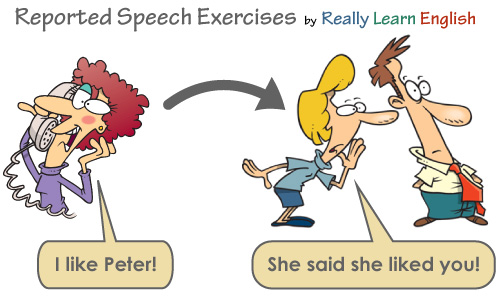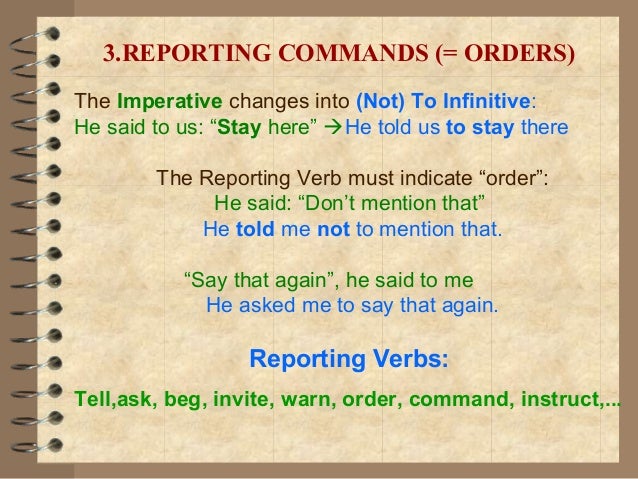STATEMENTS
QUESTIONS
MORE QUESTIONS
COMMANDS
QUOTE OF THE WEEK
Trust men and they will be true to you; treat them greatly, and they will show themselves great.
Ralph Waldo Emerson
Ralph Waldo Emerson
martes, 31 de marzo de 2020
EBAU. TEST 2
Our EBAU test for this week deals with banning on smoking.
DEADLINE TO SEND IT: FRIDAY, APRIL 3RD
Click HERE to download the test
DEADLINE TO SEND IT: FRIDAY, APRIL 3RD
Click HERE to download the test
lunes, 30 de marzo de 2020
ALUMNOS CON INGLÉS PENDIENTE DE 1º BACHILLERATO
For those students who failed English last year, our teacher María Cortés has prepared three tasks to practise. It is very important to keep working during quarantine. This time can be a good opportunity to improve your English.
Important. Pay attention to the deadlines to send María these tasks:
Download the documents to see them properly.
TASK 1
TASK 2
TASK 3
Important. Pay attention to the deadlines to send María these tasks:
|
DATE YOU WILL BE SENT THE TASKS
|
TASKS
|
DEADLINE TO SEND THE TASKS
|
|
30/03
|
Reading and Writing 1
|
06/04
|
|
31/03
|
Grammar 1
|
07/04
|
|
06/04
|
Reading and Writing2
|
13/04
|
|
07/04
|
Grammar 2
|
14/04
|
|
13/04
|
Reading and Writing 3
|
20/04
|
Download the documents to see them properly.
TASK 1
TASK 2
TASK 3
REPORTED SPEECH
TO START, DO THIS QUIZ
THEN DO THIS EASY EXERCISE
TRY ANOTHER QUIZ
BASIC REPORTING VERBS: SAID OR TOLD?
CHANGES YOU MUST TAKE INTO ACCOUNT:
https://www.englishpractice.com/improve/rules-change-adverbs-indirect-speech/
This will change into that.
These will change into those.
Here will change into there.
Now/just will change into then.
Today will change into that day.
Yesterday will change into the previous day or the day before.
Last night will change into the previous night or the night before.
Tomorrow will change into the next day.
Ago will change into before.
The next day/week/year will change into the following day/week/year.
Hence will change into thence.
Thus will change into so or in that way.
Direct: He said, ‘I am too weak to work now.’
Indirect: He said that he was too weak to work then.
Direct: She said, ‘I will leave for New York tomorrow.’
Indirect: She said that she would leave for New York the next day.
Direct: He said, ‘I visited them yesterday.’
Indirect: He said that he had visited them the previous day.
Direct: She said, ‘I liked this bag.’
Indirect: She said that she liked that bag.
Direct: I said, ‘I am leaving tomorrow.’
Indirect: She said that she was leaving the next day.
Direct: She said, ‘These mangoes are rotten.’
Indirect: She said that those mangoes were rotten.
Direct: He said, ‘These are our dogs.’
Indirect: He said that those were their dogs.
W-QUESTIONS
MORE PRACTICE
LINK 1
TEST
THEN DO THIS EASY EXERCISE
TRY ANOTHER QUIZ
The verbs say and tell have similar meanings. They both mean "to communicate verbally with someone". But we often use them differently.
The simple way to think of say and tell is:
- You say something
- You tell someone something
| You say something | You tell someone something |
|---|---|
| Ram said that he was tired. | Ram told Jane that he was tired. |
| Anthony says you have a new job. | Anthony tells me you have a new job. |
| Tara said: "I love you." | Tara told John that she loved him. |
But, of course, it is not always so easy. Here are a few rules to help you.
Personal object
We usually follow tell with a personal object (the person that we are speaking to). We usually use say without a personal object:
We usually follow tell with a personal object (the person that we are speaking to). We usually use say without a personal object:
- She told me that she loved John.
- She said that she loved John.
- He told everybody that he had to leave.
- He said that he had to leave.
Say "to someone"
With say, we sometimes use "to someone":
With say, we sometimes use "to someone":
- He said to me that he was tired.
- Tara said to Ram that he had done very well.
- Anthony said to her, "I hope you come soon."
BASIC REPORTING VERBS: SAID OR TOLD?
CHANGES YOU MUST TAKE INTO ACCOUNT:
https://www.englishpractice.com/improve/rules-change-adverbs-indirect-speech/
This will change into that.
These will change into those.
Here will change into there.
Now/just will change into then.
Today will change into that day.
Yesterday will change into the previous day or the day before.
Last night will change into the previous night or the night before.
Tomorrow will change into the next day.
Ago will change into before.
The next day/week/year will change into the following day/week/year.
Hence will change into thence.
Thus will change into so or in that way.
Direct: He said, ‘I am too weak to work now.’
Indirect: He said that he was too weak to work then.
Direct: She said, ‘I will leave for New York tomorrow.’
Indirect: She said that she would leave for New York the next day.
Direct: He said, ‘I visited them yesterday.’
Indirect: He said that he had visited them the previous day.
Direct: She said, ‘I liked this bag.’
Indirect: She said that she liked that bag.
Direct: I said, ‘I am leaving tomorrow.’
Indirect: She said that she was leaving the next day.
Direct: She said, ‘These mangoes are rotten.’
Indirect: She said that those mangoes were rotten.
Direct: He said, ‘These are our dogs.’
Indirect: He said that those were their dogs.
REPORTED SPEECH: QUESTIONS
YES/NO QUESTIONS:W-QUESTIONS
http://www.perfect-english-grammar.com/reported-speech.html
Reported Requests
There's more! What if someone asks you to do something (in a polite way)? For example:
- Direct speech: "Close the window, please"
- Or: "Could you close the window please?"
- Or: "Would you mind closing the window please?"
All
of these requests mean the same thing, so we don't need to report every
word when we tell another person about it. We simply use 'ask me + to + infinitive':
- Reported speech: She asked me to close the window.
Here are a few more examples:
| Direct Request | Reported Request |
| “Please help me”. | She asked me to help her. |
| “Please don't smoke”. | She asked me not to smoke. |
| “Could you bring my book tonight?” | She asked me to bring her book that night. |
| “Could you pass the milk, please?” | She asked me to pass the milk. |
| “Would you mind coming early tomorrow?” | She asked me to come early the next day. |
To report a negative request, use 'not':
- Direct speech: "Please don't be late."
- Reported speech: She asked us not to be late.
Reported Orders
And
finally, how about if someone doesn't ask so politely? We can call this
an 'order' in English, when someone tells you very directly to do
something. For example:
- Direct speech: "Sit down!"
In fact, we make this into reported speech in the same way as a request. We just use 'tell' instead of 'ask':
- Reported speech: She told me to sit down.
| Direct Order | Reported Order |
| “Go to bed!” | He told the child to go to bed. |
| “Don't worry!” | He told her not to worry. |
| “Be on time!” | He told me to be on time. |
| “Don't smoke!” | He told us not to smoke. |
MORE PRACTICE
LINK 1
TEST
FRIDAY.MARCH 27TH.KEY
If you have done Friday activities, you have access to correct them clicking HERE.
viernes, 27 de marzo de 2020
FRIDAY, MARCH 27TH
Today, we are going to start Unit 6. LIVING GREEN
Do page 80. Vocabulary. The Environment. Remeber to copy the target words on your notebook.
If you have access to the audios, do the listening on page 81.
For the weekend, do the Reading activities on pages 82-83.
On Monday, you'll have access to the key to correct.
Do page 80. Vocabulary. The Environment. Remeber to copy the target words on your notebook.
If you have access to the audios, do the listening on page 81.
For the weekend, do the Reading activities on pages 82-83.
On Monday, you'll have access to the key to correct.
jueves, 26 de marzo de 2020
KEY SELF ASSESSMENT
Now you can correct your tests on unit 5.
KEY UNIT 5 TESTS
PLEASE LEAVE YOUR COMMENTS TELLING ME HOW YOU DID IT AND WHAT THE EASIEST OR MOST DIFFICULT PARTS WERE.
KEY UNIT 5 TESTS
PLEASE LEAVE YOUR COMMENTS TELLING ME HOW YOU DID IT AND WHAT THE EASIEST OR MOST DIFFICULT PARTS WERE.
miércoles, 25 de marzo de 2020
WEDNESDAY AND THURSDAY MARCH 25TH. UNIT 5 SELF ASSESSMENT
Today and tomorrow we are going to do a self assessment of UNIT 5. Make sure you do it correctly, so it is useful:
0. Before downloading the tests, revise unit 5, vocabulary and grammar. Don't do the tests before revising the contents.
1. There are two levels, 1 and 2, according to the difficulty. My advice is that you do both.
2. Choose a time to do them. You will need at least 30-45 minutes for each one, with no interruptions. You can do level 1 today and level 2 tomorrow.
3. If you can, print the tests and do them handwritten, as if you were at school. If not, do them on your computer.
4. Don't use the text book, your computer, mobile phone or any other help.
5. When your teacher posts the aswers, correct your tests and give yourself a mark.
6. The last step (a very important one!!) is to correct your mistakes and copy the wrong sentences correctly on your notebook.
CLICK HERE TO DOWNLOAD THE TESTS:
UNIT 5 LEVEL 1
UNIT 5 LEVEL 2
Self assessment is very useful, but only if you do it in the correct way.
0. Before downloading the tests, revise unit 5, vocabulary and grammar. Don't do the tests before revising the contents.
1. There are two levels, 1 and 2, according to the difficulty. My advice is that you do both.
2. Choose a time to do them. You will need at least 30-45 minutes for each one, with no interruptions. You can do level 1 today and level 2 tomorrow.
3. If you can, print the tests and do them handwritten, as if you were at school. If not, do them on your computer.
4. Don't use the text book, your computer, mobile phone or any other help.
5. When your teacher posts the aswers, correct your tests and give yourself a mark.
6. The last step (a very important one!!) is to correct your mistakes and copy the wrong sentences correctly on your notebook.
CLICK HERE TO DOWNLOAD THE TESTS:
UNIT 5 LEVEL 1
UNIT 5 LEVEL 2
Self assessment is very useful, but only if you do it in the correct way.
lunes, 23 de marzo de 2020
viernes, 20 de marzo de 2020
KEY.UNIT 5. PAGES 72, 76,77
To correct the activities from the book we did during this week, click HERE.
FRIDAY MARCH 20TH. EBAU PRACTICE 1. 3RD TERM
EBAU practice 1 (3rd term). Do the exam paper in a doc and send it to your teacher in a doc. attached to an email.
DEADLINE: TUESDAY, MARCH 24TH
CLICK HERE TO DOWNLOAD THE TEST
DEADLINE: TUESDAY, MARCH 24TH
CLICK HERE TO DOWNLOAD THE TEST
BURLINGTON BOOKS ACCESS
Burlington Publisher has provided free access to our text books. In this link you can follow the instruction to use these materials.
CLICK HERE
CLICK HERE
jueves, 19 de marzo de 2020
THURSDAY MARCH 19TH HAPPY FATHER'S DAY
EASY TASK TODAY!
FOLLOW THE LINK, LISTEN TO THE SONG AND LEAVE YOUR COMMENTS TO SAY THANK YOU TO YOUR DADS.
CLICK HERE
FOLLOW THE LINK, LISTEN TO THE SONG AND LEAVE YOUR COMMENTS TO SAY THANK YOU TO YOUR DADS.
CLICK HERE
lunes, 16 de marzo de 2020
TUESDAY AND WEDNESDAY, MARCH 17TH AND 18TH
Hi everyone.
Today and tomorrow we are going to work with our text book, focusing on vocabulary.
Do activities on page 72 (ex. 2), 76 (all), 77 (all).
Please try to do these activities on your notebook.
Please, leave comments with your doubts.
On Wednesday/Thursday we'll see the corrections.
Today and tomorrow we are going to work with our text book, focusing on vocabulary.
Do activities on page 72 (ex. 2), 76 (all), 77 (all).
Please try to do these activities on your notebook.
Please, leave comments with your doubts.
On Wednesday/Thursday we'll see the corrections.
domingo, 15 de marzo de 2020
MONDAY, 16 MARCH
I hope everybody is safe and sound after the weekend.
The task for today is to visit English at Norba blog and do the activities in this entry:
https://englishatnorba.blogspot.com/2020/03/andra-tutto-bene.html
1.-You have to watch a short video about coronavirus and do the quiz and the challenge. Write down on your notebook the new vocabulary.
2 .-Leave a message in the comments telling us how you are, how you feel. Leave a link sharing a song, a video, an image... anything you want to share with the Norba community. Don't forget to write your name and group.
I'll give positive marks for participating.
The task for today is to visit English at Norba blog and do the activities in this entry:
https://englishatnorba.blogspot.com/2020/03/andra-tutto-bene.html
1.-You have to watch a short video about coronavirus and do the quiz and the challenge. Write down on your notebook the new vocabulary.
2 .-Leave a message in the comments telling us how you are, how you feel. Leave a link sharing a song, a video, an image... anything you want to share with the Norba community. Don't forget to write your name and group.
I'll give positive marks for participating.
viernes, 13 de marzo de 2020
FRIDAY 13TH MARCH
Debido al cierre del centro, vamos a trabajar a través del blog. Iré poniendo las instrucciones y las actividades que tenemos que realizar. Estad atentos porque algunas habrá que enviarlas a mi correo. En otros casos, os pediré participar a través de los comentarios del propio blog.
Activities Friday and weekend
-Entrada de verbos modales de este blog (10 de marzo)
-Writing 1: Opinion. "Should we ban traffic in the central areas of cities and towns? (120 palabras) (enviar a mi correo antes del 18 de marzo)
Instrucciones para enviar la redacción:
1.-Pegar el texto en el propio correo. No adjuntar.
2.-Las correcciones irán en mayúscula.
3.-No olvidéis identificaros.
4.-Respetar siempre la fecha de entrega.
Activities Friday and weekend
-Entrada de verbos modales de este blog (10 de marzo)
-Writing 1: Opinion. "Should we ban traffic in the central areas of cities and towns? (120 palabras) (enviar a mi correo antes del 18 de marzo)
Instrucciones para enviar la redacción:
1.-Pegar el texto en el propio correo. No adjuntar.
2.-Las correcciones irán en mayúscula.
3.-No olvidéis identificaros.
4.-Respetar siempre la fecha de entrega.
Suscribirse a:
Entradas (Atom)













